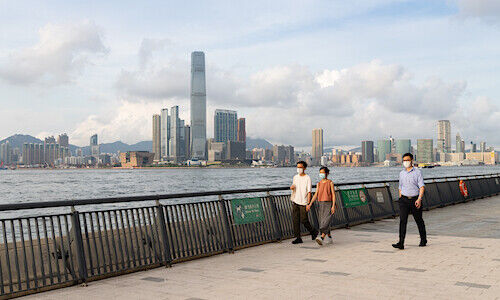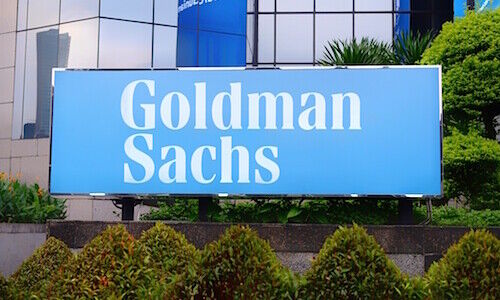More Loosening Needed for Hong Kong's Hub Revival
The success of Hong Kong’s reopening could determine if the city is able to revive its status as a global hub – be it in finance or beyond. An announcement to scrap hotel quarantines is a good start but the city needs to do more and do it quickly.
As of today, inbound travelers to Hong Kong will no longer have to undergo mandatory hotel quarantine. Instead, they are subject to self-monitoring while being barred from entering places such as restaurants and bars for a period of three days. Border rules for Covid testing and the return of unvaccinated residents have also been loosened.
«If there are positive developments, then, of course, we can have more room to go into further consideration as to how we will allow even more activities and create more convenience,» said Hong Kong chief executive John Lee during a press conference last Friday, according to an official transcript.
«I think it's important for people to know that we are aiming at one single direction of allowing people to come with more convenience, and they are allowed to go about their activities with the maximum possibilities.»
Not Enough
Although the Hong Kong government surprised on the upside by loosening the health surveillance requirement to three days from the originally expected seven days, there was relatively limited fanfare over the step. In fact, business leaders and industry practitioners have already started pushing for a further relaxation.
«The relaxation is warmly welcomed, as it represents major improvements,» said Sally Wong Chi-ming, chief executive of the Hong Kong Investment Funds Association (HKIFA). «But we are just playing catchup because other major financial centers have removed all restrictions.»
The HKIFA, which represents fund firms with over $52 trillion in assets under management, has been amongst the most vocal on reopening after it reportedly sent a proposal to scrap quarantines to the local government last month.
No Hindrances
Even if authorities completely eliminate border controls, other business leaders believe that limited movement internally will still deter visitors as it creates a perception of continued restrictiveness.
«For Hong Kong to truly regain competitiveness vis-à-vis other cities around the world, the announcement is not enough,» according to an «SCMP» report citing Eden Woon, the president of the American Chamber of Commerce. «Hong Kong should be totally connected to the world without hindrance.»
«It has to be no restrictions, no quarantine, no tests,» added Inaki Amate, vice chairman of the European Chamber of Commerce in Hong Kong and president of the local Spanish Chamber of Commerce. «Any restrictions […] are going to be perceived as a limitation for coming in, while everywhere else it is possible to move around freely.»
Hong Kong-China Border
But the fate of Hong Kong’s hub status will also depend on its connectivity with mainland China. Currently, travelers from mainland China or Macau are still subject to a so-called «7+3» policy which involves one week of centralized quarantine followed by three days of home surveillance.
«Client acquisition has been tough. As a team, we seldom travel due to all the restrictions,» an anonymous senior private banker from a Swiss pure play told finews.asia. «I have to say, our ability to go out to introduce ourselves to prospects has been very much affected in the last two years, especially in Hong Kong. Honestly, almost all the new clients we’ve acquired were from referrals either from existing clients or partners such as law firms or trustees.
Still, there are optimistic signs on this front. Hong Kong’s sole Nation People’s Congress Standing Committee delegate Tam Yiu-chung said that the city could act as a reopening pilot project for Beijing to study, according to a «Financial Times» report, adding that «further relaxation of Covid restrictions will be the direction ahead for mainland China».
Ending Zero-Covid
And for pessimists who fear that Hong Kong may reverse its position on health restrictions, there are signals from government communication that zero-Covid policies could be a thing of the past.
«Right now we still have several thousand cases [per day], and it’d be rather unlikely for us to go back to zero. After all, the entire world has to be rid of infections for us to achieve that,» said Chuang Shuk-kwan from Hong Kong's Centre for Health Protection during a regular press briefing on Saturday. «It looks like Covid will stay with us.»
Speed Essential
Yet, while the latest announcement to scrap hotel quarantines is a good start, the city needs to accelerate its reopening efforts to avoid further losses to rival hubs which are not standing still and making various post-pandemic efforts themselves to attract talent and capital.
Singapore has been the most notable beneficiary, with over 700 professionals relocating from Hong Kong to the city-state in 2021 alone, according to a report by search firm Robert Walters. It launched a new visa in August to target high-end workers worldwide. Other winners from Hong Kong outflows include the UAE which will reportedly see the relocation of veteran Rothschild banker Finlay Wright later this year.
Hub Status
In a rare admission to criticism about the deteriorating hub status, a Hong Kong government spokesperson said last week that authorities would «continue to listen to views and be bold in taking forward reforms», in response to the city’s lowered ranking in a recent financial center index by two think tanks, the China Development Institute and Z/Yen Partners.
The city’s reputational risks, however, are not purely limited to finance. Industry leaders have voiced concerns about the loss of its status as a hub in other areas, including cruise ships and aviation. Both have seen traffic plunge due to the restrictive travel policies over the past two years. A recent survey by Google also said that Hong Kong was a relatively uncompetitive fintech hub compared to other markets, with the regulatory burden and a lack of talent cited as the top hurdles.
More needs to be done and done quickly in order for Hong Kong to revive its status as an open and globally connected hub for business, finance, and beyond. After enduring nearly three years of grueling Covid curbs, any hiccups or reversals could materially hit confidence and further drive businesses to seek alternatives elsewhere.




























